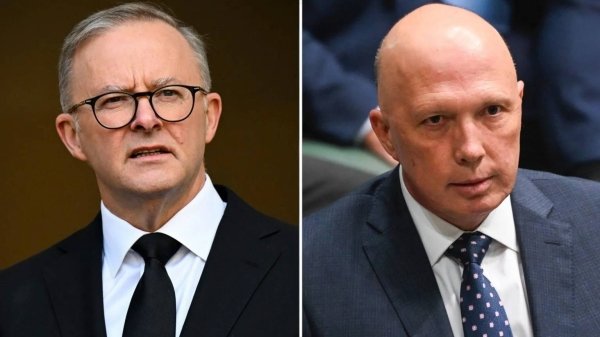Australia to hold federal election on May 3 as Albanese battles Dutton for second term

SYDNEY — Australia will head to the polls on May 3 for a federal election that could reshape the country’s political landscape.
Prime Minister Anthony Albanese, whose center-left Labor Party holds a narrow majority, confirmed the date on Friday after visiting the Governor General in Canberra.
Opinion polls suggest a tight contest between Labor and the conservative Liberal-National Coalition, led by Opposition Leader Peter Dutton.
The race could result in a hung parliament, with independents and minor parties—who gained a record share of the vote in the 2022 election—potentially holding the balance of power.
Cost-of-living concerns are expected to dominate the campaign. Albanese, seeking a second term, emphasized that his government needs more time to address economic pressures and deliver on reforms.
“It was always going to take more than three years to clean up 10 years of mess,” he said, referring to the Coalition’s previous decade in power.
“This election is a choice between Labor’s plan to keep building or Peter Dutton’s promise to cut,” Albanese told reporters in a press conference.
He reiterated commitments to provide free doctor visits, introduce small tax cuts, and lower household expenses.
Dutton, who is expected to formally launch his campaign later Friday, has accused the Labor government of failing to deliver tangible improvements for Australians.
He has pledged to “get Australia back on track” by reducing the size of government, cutting fuel costs, and strengthening energy security.
With voters increasingly concerned about rising grocery prices, housing affordability, healthcare access, immigration, and crime, the campaign will be closely fought. Climate policy, which defined the last election, also remains a key issue for many Australians.
Australia’s political system is traditionally dominated by Labor and the Liberal-National Coalition. To form a majority government, either side must win at least 76 of the 150 seats in the House of Representatives. Voting is compulsory for adult citizens.
Albanese came to power in 2022 following a period of political instability that saw six prime ministers in eight years. His election was seen as a reset, promising integrity and unity.
Early in his tenure, he passed legislation to boost Australia’s emissions reduction targets and capped carbon emissions from major polluters, although experts have called for stronger action.
However, Albanese’s flagship initiative to constitutionally recognize Indigenous Australians and create an advisory body—the Voice to Parliament—was rejected in a 2023 referendum, dealing a blow to his government.
He has also faced public criticism over global economic challenges impacting living standards, including a controversy surrounding his purchase of a A$4.3 million cliff-top home amid a national housing crisis.
Australians have not voted out a government after just one term since 1931, but the outcome of this election remains uncertain.
Dutton, a former Queensland police officer with more than two decades in Parliament, has held senior roles in immigration, defence, and home affairs. Known for his tough stance on border control and conservative views, he is now working to soften his image as he seeks to present himself as a unifying national leader. — BBC
Source link



